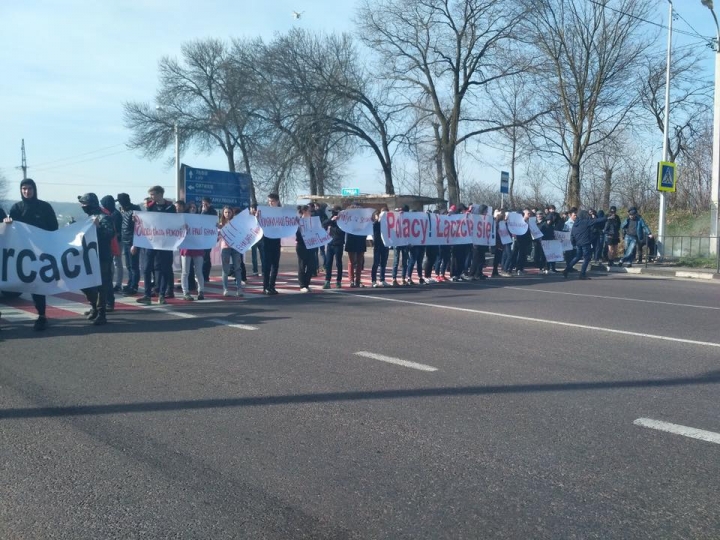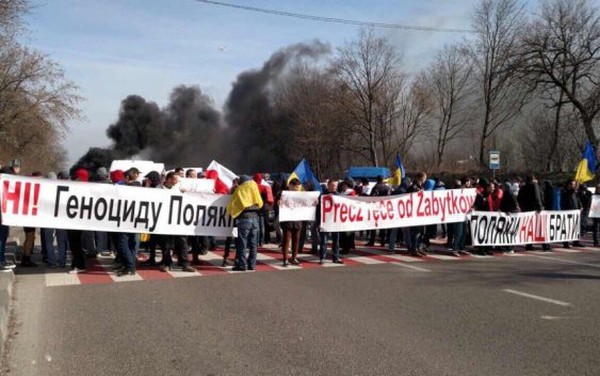It's 6 April 2017 in Ukraine, and the Polish consulates were reopened following a weekly pause after the Polish Consulate General in Lutsk was hit in a grenade attack. This was the latest episode in a series of inflammatory events with a clear purpose to exacerbate tensions between the neighboring countries. Despite Poland and Ukraine sharing mutual enmity in the past, after the dissolution of the USSR they established close relations, with Poland being Ukraine's main advocate in the EU.
Recently, tensions between the two countries had been growing: cemeteries related to World War II events were being desecrated, and monuments defaced on both sides of the border. The period of World War II is an especially sensitive one: Ukraine's search for new national symbols while being attacked by Russia have led to a veneration of the WW-II Ukrainian Insurgent Army (UPA), guerilla fighters that, following a brief period of collaboration with Nazi Germany, fought against Germany, the Red Army, and Poland. Poland remembers them mainly by a series of slaughters and ethnic cleansings of 1943-1944 in Ukraine’s northwestern region called called Volyn slaughter in Polish and Volyn tragedy in Ukrainian. Despite historians setting up initiatives to jointly search for historical truth, the topic of UPA remains a permanent source of hostility between the two nations. Poland's recent adoption of a resolution proclaiming the Volyn massacre as "genocide" has added fuel to the fire.
The Ukrainian-Polish memory wars have been christened a "gift for Putin" and fingers have been pointed at Russia following the grenade attack. So, what evidence is there for a Russian trace?
Mysterious attack, fake rally
Ukraine's security service (SBU) has named the suspect of the Polish consulate attack in Lutsk on 29 March. In a press announcement, they blame it on Mykola Dulskyi, leader of the Nazhdak radical civic organization who they called a well-known agent of influence of the Russian special services conducting anti-Ukrainian activities starting from 2015.
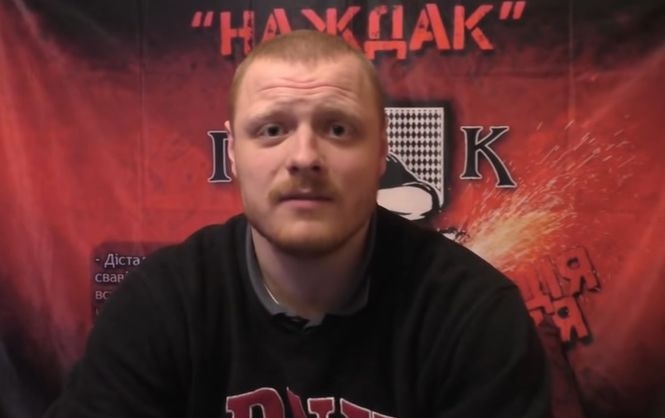
The SBU named him the main organizer of a provocation that happened the same day as the grenade attack, when a group of some 100 protesters in Hriada (Lviv Oblast) blocked the international highway passing through Rava-Ruska to Poland, causing a traffic jam. Holding posters such as "Volyn is in our hearts," "NO to the genocide of Poles," "Poles are our brothers," "Take your hands off the monuments" in Polish and Ukrainian, and setting tires on fire, they could not answer why they were there and what they demanded, and were arrested by the police.
But the media component of the protest was more professional - the group had hired a drone operator to film them from above, who sold his material to the journalists of Zaxid.net, apparently because the organizers didn't pay up after the arrest. The dramatic footage portrays a picture of chaos and is more than likely to have been destined to create a propaganda picture for Russian media.
This case is now being investigated for inciting inter-ethnic enmity by the Security Service. Among the participants are 22 underage students, homeless people, and only one ethnic Pole. They were paid 150-200 UAH ($5-7; yes, Ukraine is a poor country) and carried written instructions which the SBU made public. Written in Russian with an abundance of explicit language, they lay out a detailed plan to make the best picture for the cameras and threaten to not pay the promised sum if the participants do anything wrong: "Everyone should stand at the pedestrian crossing, unfold the posters simultaneously, ignite the tires and light up a fire-show at the edges. NO BATHROOM BREAKS. Talking heads tell about the protest to the cameras on this backdrop. The drone and cameras film everything. The protesters should obey the video team like slaves. The protest should be filmed from far away to show that there are many people. IF YOU B**CHES MESS UP WITH ANYTHING I WILL SCR*W YOU." It was planned that the group would stand there until late evening.
Instructions were also sent to the phones of the organizers:
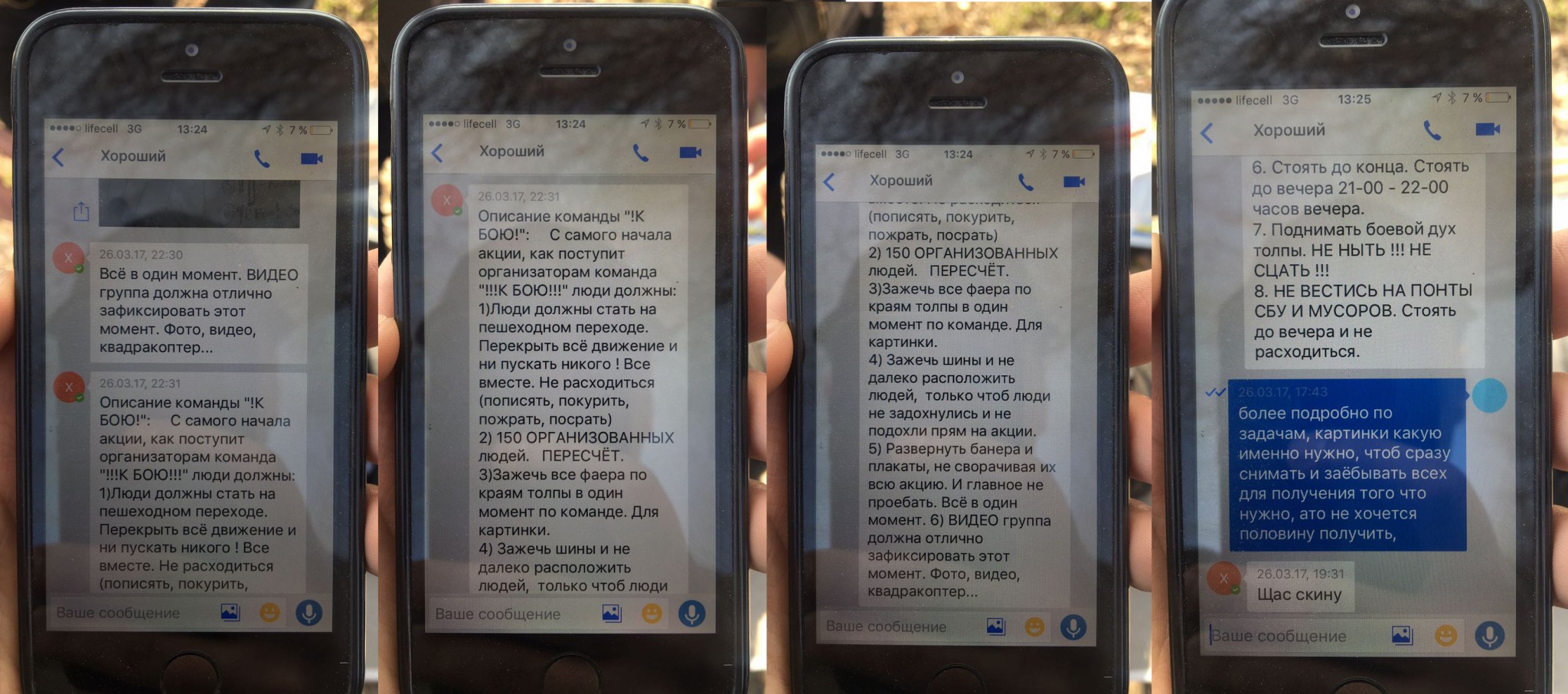
The Security Service declared that pro-Russian forces aiming to destabilize the situation and ignite interethnic enmity between Poland and Ukraine are behind this rally. "Today we had the next stage of our enemy's actions and this event today was more prepared and refined. There was a documenting group equipped with a quadrocopter. Their goals were to make a 'good picture' for the media, especially for the psychology of Russians, Belarusians, Moldovans, and Poles," Valeriy Sereda, head of the national police in the Lviv Oblast, told
at the press briefing following the event, and added: "our 'permanent clients' prone to drug use were there too, and children 13-14 years old - students of Lviv middle schools."
The style of this protest repeats a similar event on 12 March, when the police intercepted a bus carrying 35 people (of which 14 were schoolchildren) with posters written in bad Polish, which was driving to the Shegyni border crossing between Poland and Ukraine. They were promised $3.50.The organizer of the group had been previously convicted.
The war on monuments
The incident with the Lutsk bombing and fake rally is considered to be the latest stage in the ongoing "war on monuments" between Poland and Ukraine. Starting from late 2016, news reports in both countries were full of incidents guaranteed to strike a sour note in both countries.
On 10 October 2016, a monument to UPA soldiers was destroyed in the Polish village of Werchrat. The suspected culprits are members of the radical nationalist group Oboz Wielkiej Polski who uploaded the video of the demolition to youtube.
On 12 January 2017, a group of vandals partially destroyed a monument to Poles killed during WWII in the village of Huta Peniatske, Brody district, Lviv region.

On 25 January 2017, graves of Polish officers at the Bykivnia cemetary in north-central Ukraine were vandalized with the words "OUN-UPA" and "SS-Galizien" being painted over the grave monuments in red, the last one referring to the Ukrainian division which collaborated with the Nazis and is accused by the Polish Institute of National remembrance for the ethnic cleansing of Poles in Huta Peniatske.
The Polish consulate in Lviv was attacked too - vandals splattered it with paint and graffiti on 8 February 2017.
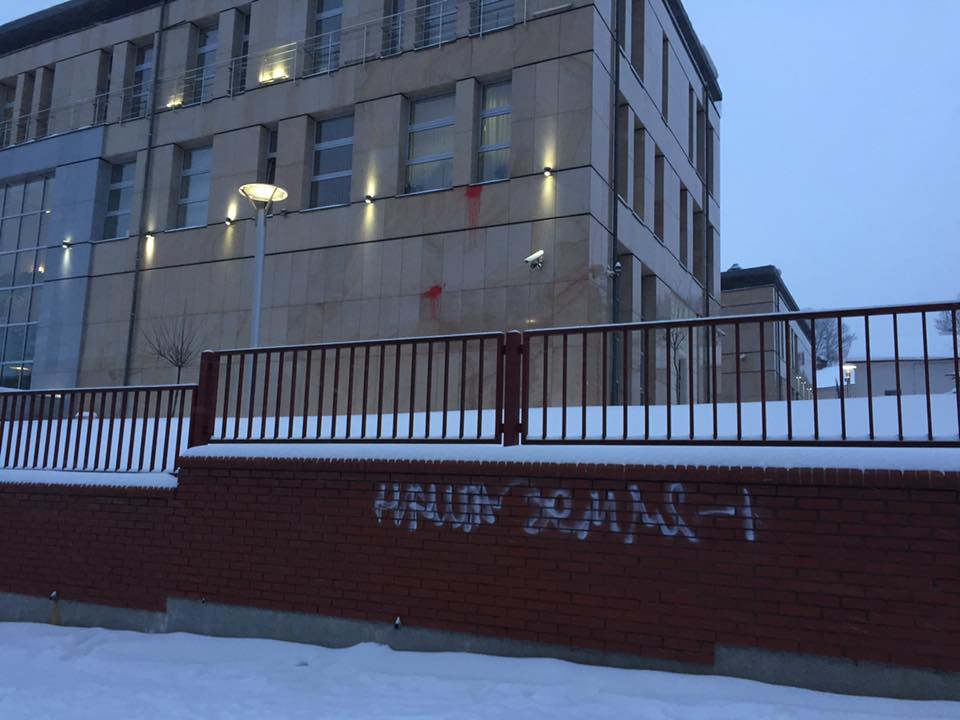
On 10 March 2017, a monument to Polish professors was vandalized in Lviv, with "death to Liakhy" written over it, referring to a local name for Poles in Ukraine. Two days later, more monuments to massacred Poles were vandalized in Lviv, with the same inscription "death to Poles."
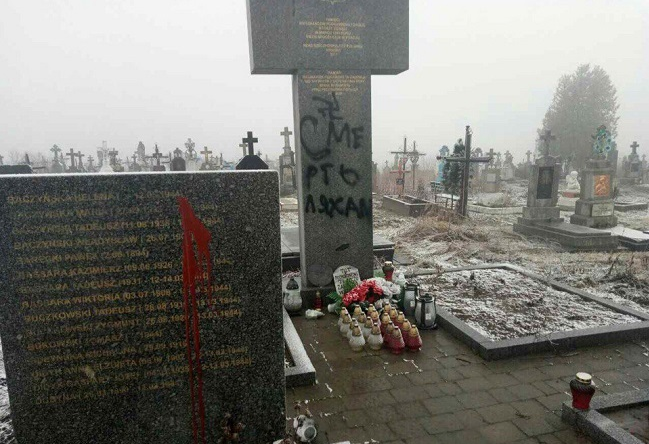
The director of Ukraine's Institute of National Remembrance, Volodymyr Viatrovych, who has been blamed for excessive veneration of the UPA, has also fallen prey to the hostility. On 16 February 2016, he was attacked. On 1 March
, the door of his institute was set on fire. On 3 March, a funeral wreath with this name was brought to the institute's front door.

On 16 March, the foreign ministers of Poland and Ukraine assessed the ongoing acts of vandalism on monuments as part of Russia's hybrid war.
The Russian trace
"We did not start this war - it is a clear provocation. Both Poles and Ukrainians understan who is behind the destruction [of the monuments]. A cross is destroyed during the night - a symbol that is dear to Christians, Poles and Ukrainians alike. So it's impossible that this is being done by Ukrainians or Poles. I'm convinced that this is being done by criminals paid by Russia," Jak Pieklo, Poland's ambassador to Ukraine, told LB.UA.
Indeed, there are good reasons to suspect Russian money in fueling up ethnic hatred between the nations. Recently, Ukrainian hackers from the Ukrainian Cyber Alliance hacked the email and facebook accounts of Vladimir Usovsky, a Belarusian activist and proponent of the ideas of the "Russian world" living in Poland. The correspondence was analyzed by the Informnapalm investigative community. In it, he is seen receiving €100,000 from Russian oligarch Konstantin Malofeyev to organize rallies in support of "Novorossiya," Russia's proxy states in Donbas, during August-October 2014, as well as discrediting monuments to UPA fighters in Poland. One of them was the vandalization of the monument in Hruszowicy with the symbols of the Polish Falanga organization in Septemer 2014. However, judging from the correspondence, it is possible that the act was carried out by members of the Oboz Wielkiej Polski, paid by the Kremlin.
After Malofeyev was switched from Ukrainian affairs in late 2014 to coordinating the unrest and subsequent unsuccessful coup in Montenegro, Usovsky managed to get in touch with Konstantin Zatulin, director of the Russian Institute for CIS Countries who was elected to the Russian Duma in September 2016. Usovsky's plans for cooperating with Zatulin include an endeavor to oblige all Ukrainians working, studying, and living in Poland to take a pledge condemning the UPA, in cooperation with the parliamentary parties Kukiz’15 and PSL. The project with a timeframe of 7 weeks was started on 1 February and had a price tag of $104,000. However, the correspondence reveals that small rallies took place in Poland in parallel with the large-scale project - traditional rallies against the UPA, pro-Russian events with the participation of Polish nationalist organizations OWP and KORWiN which cost just a few thousand euros.
The sensitive issues of historical memory are ideal for spoiling relations between Poland and Ukraine, and the Kremlin is playing this card to the best of its abilities using radical organizations from both sides. Whether it will succeed depends now on the Poles and Ukrainians themselves.
Read more:
- Ukraine and Poland to investigate Volyn tragedy in joint historical commission
- How the Ukrainian-Polish partnership can pass the test of history
- Why are there new tensions between Ukraine and Poland?
- Polish ruling party: Ukraine’s version of historical memory of Volyn is “a problem”
- Attack on Poland’s Consulate General in Northwestern Ukraine seen as provocation
- Polish religious leaders support Ukrainian letter of repentance for Volyn
- Polish-Ukrainian confrontation over historical past gains momentum
- Ukrainian students and activists address the Polish people
- Understanding Polish concern about Ukrainian veneration of the UPA
- The Volyn Tragedy: Reconciliation or Confrontation?
- Polish authorities show no interest in reducing ethnic confrontation
- Ukrainians call upon Poles to establish mutual Day of Remembrance


